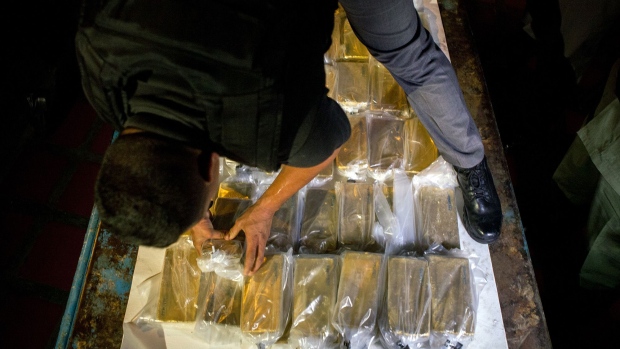Jun 5, 2020
Gold sags as 'mind-blowing' unemployment rate curbs haven demand
, Bloomberg News

Gold posted the longest run of weekly losses since September as surprisingly better U.S. job numbers provided further signs the global economy is picking up faster than anticipated, curbing haven demand.
A key gauge of payrolls rose by 2.5 million, trouncing forecasts for a sharp decline following a 20.7 million tumble the prior month. The jobless rate fell to 13.3 per cent from 14.7 per cent.
“The U.S. unemployment rate has shocked everyone because the number was much lower than the market expectation,” Naeem Aslam, chief market analyst at Ava Trade, says in an emailed message. “This is a mind-blowing number and shows that the economy is improving.”
After climbing to a seven-year high in April, bullion’s haven appeal has weakened as more economies reopen awash with stimulus following coronavirus lockdowns. Global equities are near the highest since early March amid optimism for a quick economic recovery. And holdings in gold-backed exchange-traded funds fell for the first time since April on Thursday, ending the longest run of inflows in more than a year.
Gold futures for August delivery fell 2.6 per cent to settle at US$1,683 an ounce at 1:30 p.m. on the Comex in New York. Prices are down 3.9 per cent this week, a third straight weekly drop, the longest losing streak since mid-September. Spot gold was 1.9 per cent lower.
A Bloomberg Intelligence index of senior gold miners also took a hit, falling 4.7 per cent so far this week and heading for the worst such drop since March. The index was dragged lower in part by Agnico Eagle Mines Ltd.’s 13 per cent decline in Toronto and Newmont Corp.’s 7.9 per cent loss in New York.
Still, U.S.-China tensions, risks around the global recovery and expectations of more stimulus may support prices. The European Central Bank announced a larger-than-expected boost to bond-buying on Thursday and investors are awaiting plans for the next round of U.S. stimulus.
Even though gold prices may face a near-term correction, the metal may climb toward a record in the second half of this year as yields remain low and real rates stay negative, according to Metals Focus Director Nikos Kavalis.
Some banks have raised forecasts on the metal. J.P. Morgan Asset Management changed its recommendation on gold and other precious metals to overweight, and Credit Suisse raised its price expectations, seeing the metal averaging as high as US$1,800 an ounce in 2021, according to a Friday research note. Both banks see U.S. dollar weakness and inflationary pressures supporting prices.
Holdings in gold ETFs are still near a record high, according to initial data compiled by Bloomberg. Assets fell by 2.1 tons to 3,129.2 tons as of Thursday, though they are up more than 20 per cent so far this year.




